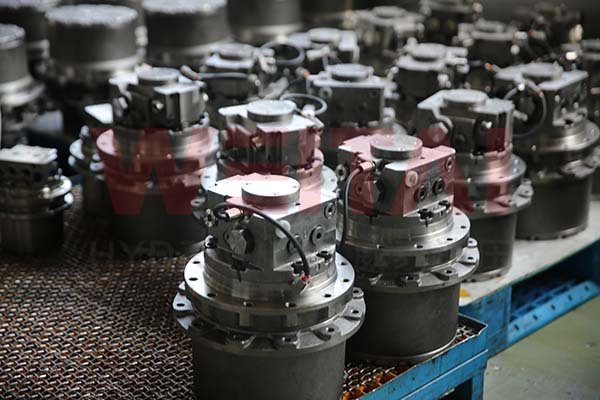In the world of heavy machinery and construction, mobile cranes play a pivotal role. These versatile machines are essential for lifting and moving heavy loads precisely and efficiently. At the heart of their operation lies a critical component: the hydraulic piston pump. Understanding the role of hydraulic piston pumps in mobile crane operations can shed light on the remarkable capabilities of these cranes and the technological advancements that make them possible.

What are Hydraulic Piston Pumps?
Hydraulic piston pumps are devices used to convert mechanical energy into hydraulic energy. They use a reciprocating piston to move fluid through a hydraulic system, generating the pressure needed to perform various tasks. These pumps are known for their high efficiency, reliability, and ability to generate significant force, making them ideal for applications in mobile cranes.
How Do Hydraulic Piston Pumps Work?
Hydraulic piston pumps operate on the principle of positive displacement. They consist of a series of pistons arranged in a circular pattern within a cylinder block. As the pistons move back and forth, they create suction and discharge cycles that draw in and expel hydraulic fluid. This fluid movement generates the pressure to power the crane’s hydraulic system.
The key components of a hydraulic piston pump include:
Pistons: Reciprocating components that move fluid through the pump.
Cylinder Block: Houses the pistons and facilitates their movement.
Valve Plate: Controls the flow of hydraulic fluid in and out of the pump.
Swash Plate: Adjusts the angle of the pistons, influencing the pump’s output and pressure.

Importance of Hydraulic Piston Pumps in Mobile Cranes
Hydraulic piston pumps are integral to the operation of mobile cranes for several reasons:
1. Precision and Control
Mobile cranes require precise control to lift and position heavy loads accurately. Hydraulic piston pumps provide the necessary control by delivering consistent hydraulic pressure. Operators can adjust the pump’s output to match the specific requirements of each lift, ensuring smooth and safe operations.
2. High Efficiency
Efficiency is crucial in mobile crane operations to minimize fuel consumption and operational costs. Hydraulic piston pumps are highly efficient, converting a large percentage of mechanical energy into hydraulic energy. This efficiency translates into lower fuel consumption and reduced environmental impact, making modern cranes more sustainable.
3. Reliability and Durability
Mobile cranes often operate in challenging environments, from construction sites to remote locations. Hydraulic piston pumps are designed for durability and reliability, with robust construction that can withstand harsh conditions. Their ability to maintain consistent performance under varying loads and pressures ensures uninterrupted crane operations.
4. High Power Density
The compact design of hydraulic piston pumps allows them to generate significant force without taking up much space. This high power density is essential for mobile cranes, where space and weight considerations are critical. It enables cranes to lift heavier loads while maintaining maneuverability and stability.
5. Versatility
Hydraulic piston pumps can be used in a variety of mobile crane configurations, from all-terrain cranes to truck-mounted cranes. Their versatility allows them to adapt to different lifting requirements and operational environments, making them a versatile choice for crane manufacturers and operators.

Advancements in Hydraulic Piston Pump Technology
The continuous evolution of hydraulic piston pump technology has led to several advancements that enhance the performance of mobile cranes:
Variable Displacement Pumps: These pumps allow operators to adjust the pump’s output to match the specific demands of each lift, improving efficiency and control.
Integrated Electronics: Modern hydraulic piston pumps often feature integrated electronic controls that provide real-time monitoring and diagnostics, enhancing reliability and ease of maintenance.
Enhanced Materials and Coatings: Advances in materials and coatings have improved the durability and longevity of hydraulic piston pumps, reducing maintenance requirements and extending service life.
Conclusion
Hydraulic piston pumps are the unsung heroes of mobile crane operations, providing the power, precision, and reliability needed to perform complex lifting tasks. Their role in transforming mechanical energy into hydraulic energy is fundamental to the efficiency and effectiveness of modern cranes. As technology continues to advance, hydraulic piston pumps will remain at the forefront of innovation, enabling mobile cranes to tackle even more challenging projects with confidence and ease.
Understanding the critical role of hydraulic piston pumps not only highlights the engineering marvels behind mobile cranes but also underscores the importance of continuous innovation in the field of hydraulic systems. Whether lifting massive steel beams or delicate construction materials, hydraulic piston pumps ensure that mobile cranes can rise to the occasion, time and time again.



